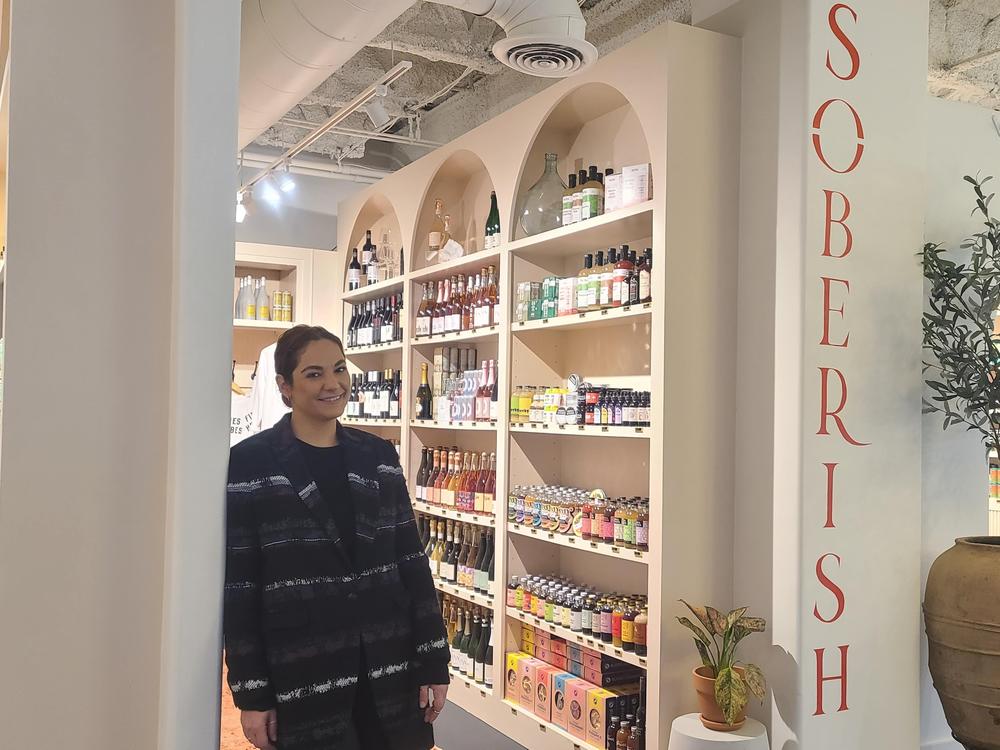
Caption
Soberish owner Mehrnush Saadat says the regulations haven't affected her business much so far, but she worries about what's ahead.
Credit: Amanda Andrews / GPB News
|Updated: October 8, 2024 1:15 PM
LISTEN: Business owners and consumers are adjusting to a new state law that governs the rules and access to hemp. GPB’s Amanda Andrews reports it went into effect this month.

Soberish owner Mehrnush Saadat says the regulations haven't affected her business much so far, but she worries about what's ahead.
This month, new Georgia hemp laws went into effect, changing the hemp industry for businesses and consumers.
Gov. Brian Kemp signed Senate Bill 494 into law in April, regulating hemp products and sales in the state.
The biggest changes require every business to attain a license to sell hemp products and bans the sale of hemp-infused food products and the smokeable THC-A flower.
Georgia Hemp Company cofounder Joe Salome said he’s prepared to pivot.
“You're going to see beverages move to the forefront as well," Salome said. "You're really going to see that product and category infiltrate the general market even more.”
The bill also limits the sale of all hemp products to people over 21 and creates new standards for product testing.
Salome said this regulation of the industry could create the structure for more partnerships.
“Our brand can now get out of just my four walls or the places of business that were willing to participate in the industry,” he said. Now that he has the legal pathway, Salome said his business can spread to partners "like Krogers, maybe QuikTrip now, maybe State Farm.”
Consumable hemp products in the form of drinks, gummies, and vapes are still legal. However, the Georgia Department of Agriculture is working on rules to limit the maximum amount of Delta-9 THC a consumable hemp product can contain.
Mehrnush Saadat owns Soberish, a store selling nonalcoholic spirits and hemp-infused beverages. She said there’s a lot of uncertainty in the industry about what comes next.
“A lot of us could be stuck carrying a lot of products if we don't have enough time to make adaptations as they go,” Saadat said. “So I think that's the biggest concern for all small businesses right now, is how much notice are we going to get for the next change?”
Saadat said that she and her customers are looking for more transparency on what is legal to combat misinformation. The proposed rule change would limit gummies to 10 milligrams per serving and 150 milligrams of Delta-9 THC per package. Beverages would be limited to 5 milligrams of Delta-9 THC per 12-ounce serving and containers could not be larger than one serving.
But Saadat said that regulation doesn’t take into account how hemp reacts differently based on individual consumers.
“There are those that just have different chemical components to their bodies and so they can tolerate a lot more,” she said. “So all you're doing is by limiting potentially limiting these milligrams, you're just creating that to become a more expensive pain relief or pain management or anxiety management for that particular consumer.”
The Georgia Department of Agriculture has not formally adopted any rules creating a maximum serving size.